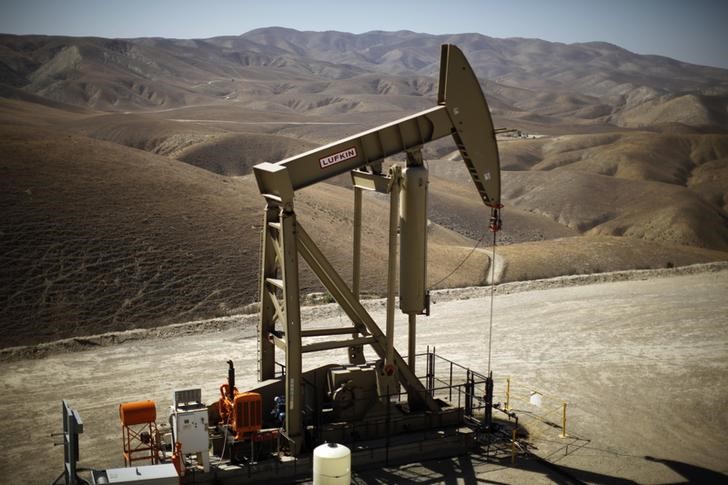Investing.com - Crude oil prices fell in Asia on Wednesday after U.S. industry estimates on inventories came in mixed, with the the U.S. benchmark edging toward $50.
On the New York Mercantile Exchange crude futures for November delivery fell 0.73% to $50.05 a barrel, while on London's Intercontinental Exchange, Brent dipped 0.11% to $55.67 a barrel.
U.S. crude oil inventories fell by 4.08 million bbarrels last week, the American Petroleumn Institute said on Tuesday, far more than expected while gasoline supplies gained 4.91 million barrels and distillates eased by 584,000 barrels.
Crude oil inventories were seen down by 467,000 barrels, while distillates likely declined by 1.1917 million barrels and gasoline stocks rose 967,000 barrels. Official data from the Energy Information Administration (EIA) is due on Wednesday.
The API and EIA figures often diverge.
Overnight, crude oil prices settled lower on Tuesday, as investors awaited weekly inventory data expected to show crude oil supplies fell for a second-straight week amid concerns that the sharp uptick in crude prices could encourage U.S. shale producers to ramp up production.
A day after crude prices fell 3% following a Reuters survey indicating that Opec ramped up output in September, OPEC Secretary-General Mohammad Barkindo attempted to ease concerns over falling compliance with the deal to curb output.
Compliance with the oil output cut deal between OPEC and non-OPEC nations is extremely high, OPEC Secretary-General Mohammad Barkindo said on Tuesday.
Investors, however, weighed the bullish comments against expectations of an uptick in US shale output as the rise in crude oil prices - above $50 a barrel – has spurred drilling activity.
“… In the bigger picture, oil is looking to see if it can hold $50 as we enter what is rationally weak demand period for oil,” Phil Flynn, senior market analyst at Price Futures Group said.
The advent of autumn is traditionally associated with weaker oil demand as it marks the end of the summer driving season. That trend, however, could be less prevalent this year as refineries are expected to replace lost supply following earlier disruptions from Hurricanes Irma and Harvey.
“Yet the traditional shoulder season for oil is off as Hurricane Harvey, Irma have made it necessary for many refineries to put off maintenance to replace lost supply and to keep up with growing global demand.” Flynn added.
